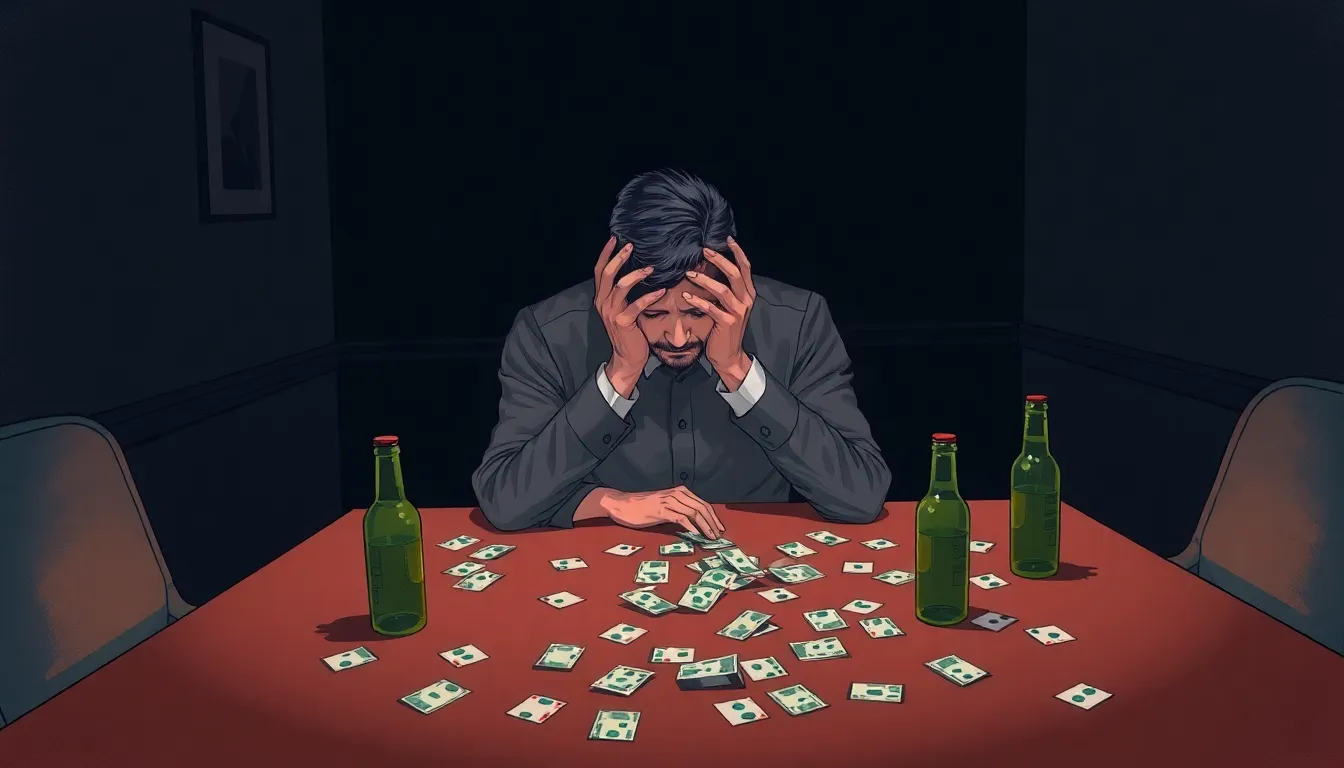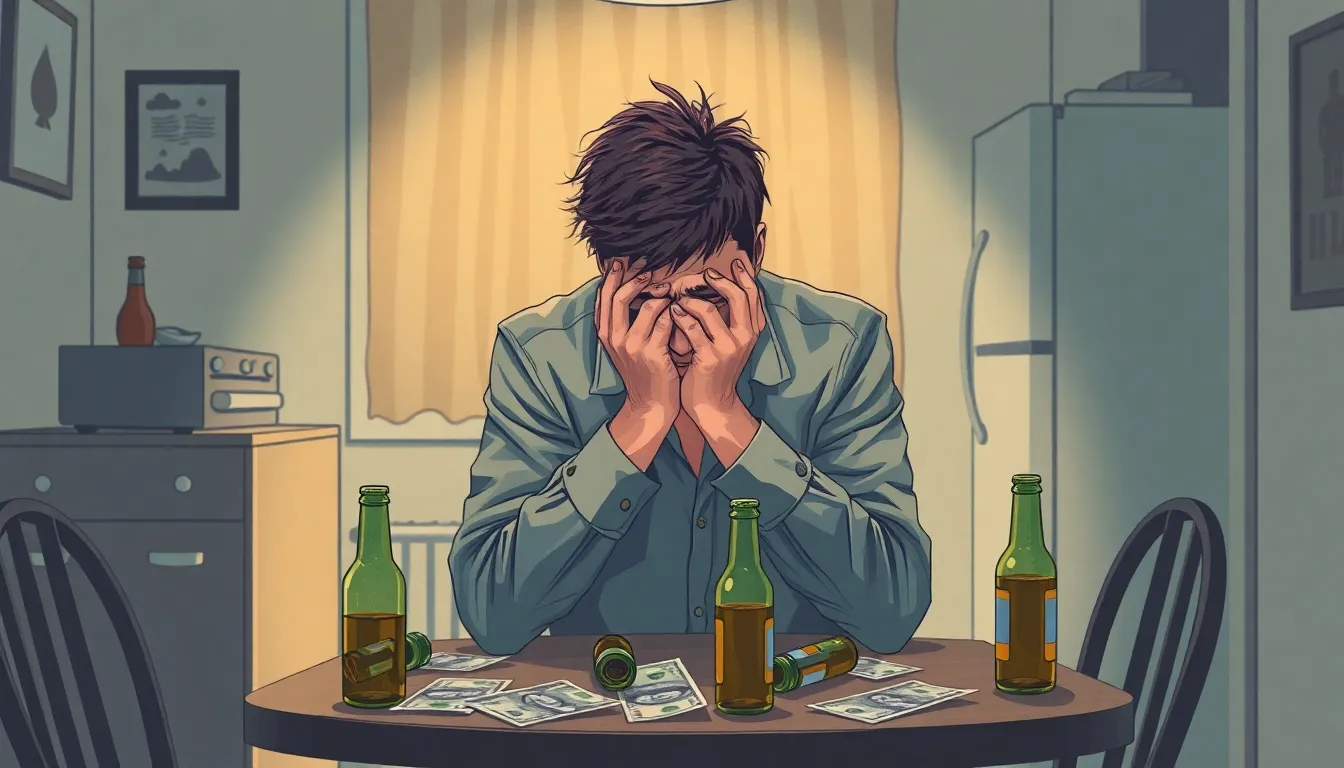Gambling might seem like just a roll of the dice or a spin of the wheel, but for many, it’s a one-way ticket to a rollercoaster of chaos. While some might argue that a little wager here and there is harmless fun, the truth is that gambling can quickly turn from a thrilling pastime to a full-blown addiction. Picture this: one moment you’re enjoying a night out with friends, and the next, you’re scouring couch cushions for spare change to fund your next bet.
Is Gambling The Worst Addiction
Gambling addiction represents a compulsion that leads individuals to risk significant financial and emotional distress. Many start gambling for enjoyment, yet this behavior can spiral into an uncontrollable urge to wager more.Definition of Gambling Addiction
Gambling addiction is characterized as an inability to control the impulse to gamble, despite the negative consequences. This disorder affects individuals across various demographics, leading to overwhelming debts and strained relationships. Recognized as a behavioral addiction, gambling addiction alters brain function similar to substance abuse. The National Council on Problem Gaming emphasizes that this addiction can result in significant psychological and financial harm.Signs and Symptoms
Recognizing gambling addiction involves identifying several key signs and symptoms. Individuals may experience persistent thoughts about gambling or feel restless when unable to gamble. Others might lie about their gambling activities, leading to deception and loss of trust among friends and family. A heightened need to bet larger amounts to achieve the same excitement can also signal addiction. Finally, many will engage in gambling as an escape from anxiety or depression, creating a destructive cycle that is difficult to break.The Impact of Gambling Addiction

Emotional Consequences
Feelings of shame and guilt frequently accompany gambling addiction. Individuals may experience heightened anxiety and persistent stress levels due to escalating behaviors. Relationships often suffer, as trust erodes when deception becomes common. Withdrawal from social interactions can occur, further isolating individuals and intensifying their emotional struggles. Chronic depression may also present itself, fueled by loss and unfulfilled promises. Each of these emotions contributes to a declining mental state, complicating the path to recovery.Financial Effects
Gambling addiction results in significant financial strain. Many individuals accumulate overwhelming debts due to continued gambling despite losses. Bankruptcy becomes a common outcome, as people exhaust savings and valuable assets in pursuit of wins. Families often face hardship, with financial resources diverted from essential needs. Job instability and loss may arise when gambling becomes a priority over employment. The financial burden affects not just the individual, but also loved ones who must deal with the aftermath of irresponsible choices.Comparing Gambling Addiction to Other Addictions
Gambling addiction shares several characteristics with other forms of substance abuse. Compulsive behavior defines both gambling and substance addictions, as individuals struggle to control their urges. Brain chemistry alterations occur in both cases, affecting dopamine levels and reinforcing the cycle of addiction. Many individuals find themselves seeking out gambling experiences much like those addicted to drugs or alcohol. The psychological distress often mirrors the struggles faced by substance abusers, leading to feelings of shame and isolation. Recognizing these similarities highlights the severity of gambling addiction as a behavioral issue deserving treatment.Similarities with Substance Abuse
Similar to substance abuse, gambling addiction impacts brain function and behavior. The craving for gambling can induce a powerful rush comparable to drug highs. Individuals frequently chase the thrill, leading to increased risk-taking that resembles alcohol-related impulsivity. Support networks often consist of family and friends who feel the fallout, similar to those involved with substance abusers. Relapses may happen as easily with gambling as with substances, showing how both addictions can disrupt lives. Treatment methods often overlap, utilizing therapy and support groups for recovery.Unique Aspects of Gambling Addiction
Gambling addiction stands apart with its unique challenges. Unlike substance-based addictions, individuals don’t experience physical withdrawal symptoms, which can lead to the misconception that the addiction isn’t serious. Financial losses can spiral out of control quickly, creating distinct emotional stressors that are less prevalent in substance abuse. Social stigma often attaches to gambling, leading individuals to hide their addiction rather than seek help. The accessibility of gambling also differentiates it; casinos and online platforms can be easily accessed, making treatment more challenging. Recovery paths may vary significantly due to these unique aspects, requiring specialized approaches for effective support.Perspectives on Gambling as an Addiction
Gambling addiction evokes varied opinions from the public and experts alike, with each perspective contributing to the understanding of its complexities.Public Opinion
Many individuals perceive gambling as a benign pastime. Casual gamblers often view it as entertainment, rather than a potential threat. However, increasing awareness of gambling addiction alters this perception. Some people recognize the risk factors, attributing serious consequences to excessive gambling. This shift in opinion reflects a growing understanding of addiction’s nuances, emphasizing its potential for harm. Misconceptions still exist, as some believe personal willpower suffices to control gambling behavior. Societal narratives often overlook the scientific basis of addiction, which isn’t simply a lack of discipline. Public discussions now frequently include the need for greater awareness and resources for individuals affected by gambling addiction.Expert Views
Experts emphasize the psychological nature of gambling addiction, characterizing it as a behavioral health issue. Research indicates it alters brain chemistry similar to substance abuse, affecting impulse control and decision-making. Specialist practitioners often cite the need for comprehensive treatment plans, addressing both psychological and social aspects of addiction. Many advocate for public health initiatives to raise awareness about the risks of gambling. Furthermore, professionals highlight the importance of early intervention in preventing severe outcomes. Understanding that gambling addiction isn’t solely about financial loss is crucial for recovery. Experts also stress creating supportive environments to help individuals rebuild their lives and relationships.Conclusion
Gambling addiction poses significant challenges that can devastate lives. It’s not just a matter of losing money; it impacts emotional well-being and relationships. The cycle of compulsion and distress can lead to severe financial repercussions and isolation. As awareness grows about the risks associated with gambling, it’s crucial to recognize it as a serious behavioral health issue. Effective treatment requires a comprehensive approach that addresses both psychological and social factors. Supportive environments and early intervention can make a substantial difference in recovery. Understanding the complexities of gambling addiction is essential for fostering healthier attitudes and promoting effective solutions.
As awareness grows about the risks associated with gambling, it’s crucial to recognize it as a serious behavioral health issue. Effective treatment requires a comprehensive approach that addresses both psychological and social factors. Supportive environments and early intervention can make a substantial difference in recovery. Understanding the complexities of gambling addiction is essential for fostering healthier attitudes and promoting effective solutions.

